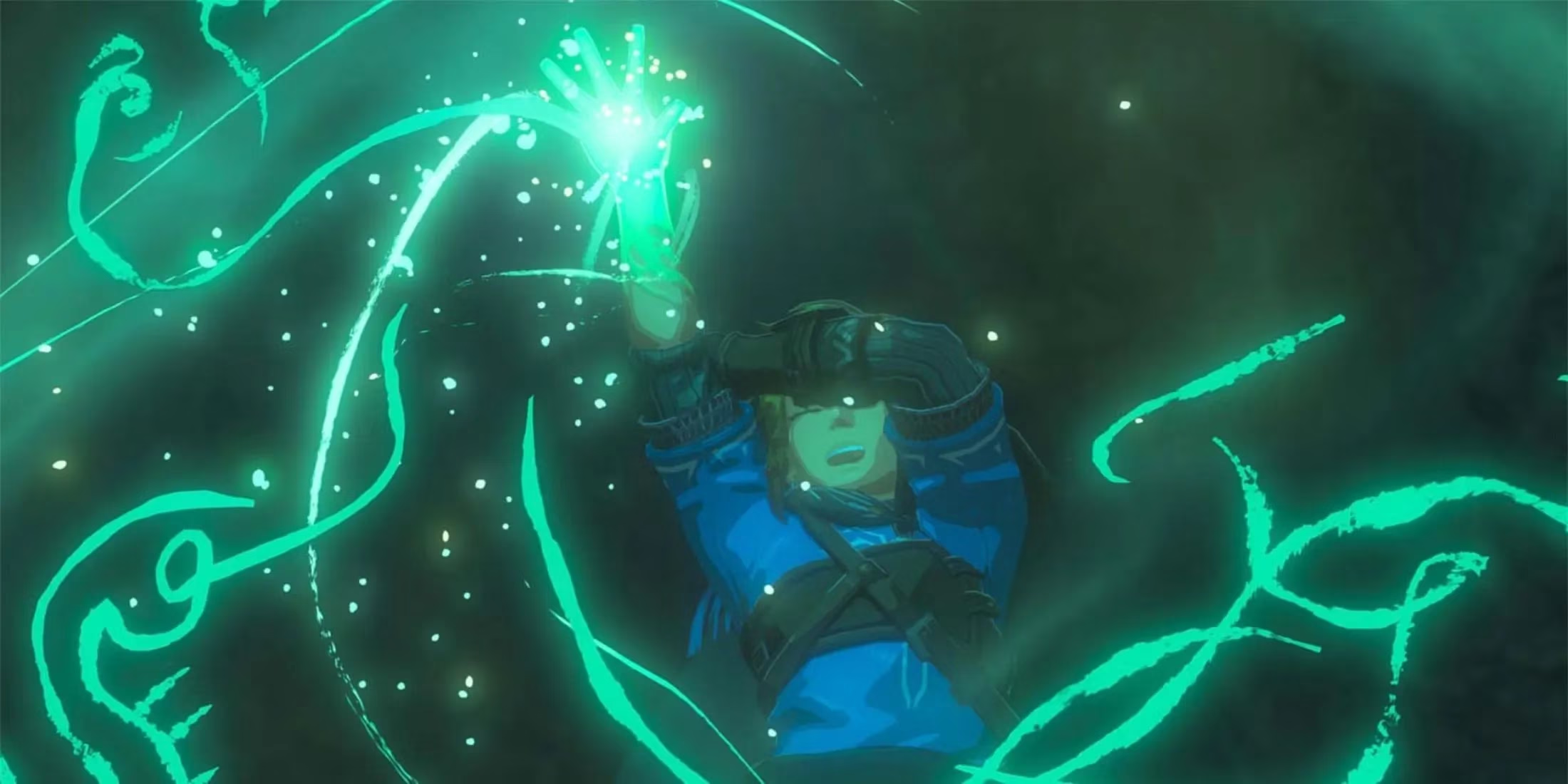Amidst the sprawling landscapes of Hyrule in The Legend of Zelda: Tears of the Kingdom, Link often finds himself gazing upward, his spirit yearning for the clouds that dance above ancient ruins. With a simple command, the Ascend ability whisks him through solid stone, a silent ascent that feels like a gentle whisper from the earth itself.  Players who wield this power describe it as a fleeting moment of liberation, where the world's burdens dissolve into the cool embrace of the sky. It's not just a tool; it's a poetic journey through layers of history, evoking a sense of awe that lingers long after the controller is set down. Many adventurers recall the thrill of emerging atop a forgotten tower, the sun painting golden streaks across the horizon, as if Ascend unlocks not just paths, but forgotten dreams.
Players who wield this power describe it as a fleeting moment of liberation, where the world's burdens dissolve into the cool embrace of the sky. It's not just a tool; it's a poetic journey through layers of history, evoking a sense of awe that lingers long after the controller is set down. Many adventurers recall the thrill of emerging atop a forgotten tower, the sun painting golden streaks across the horizon, as if Ascend unlocks not just paths, but forgotten dreams.
Yet, for all its beauty, Ascend remains an underappreciated marvel in Link's arsenal. While abilities like Ultrahand and Fuse steal the spotlight with their flashy creations—building contraptions that hum with mechanical life—Ascend operates in quiet grace, a reliable companion in moments of peril. Players often reflect on how this ability transforms mundane explorations into profound discoveries; one might scale a sheer cliff face effortlessly, feeling the rush of wind and the pulse of ancient magic beneath their fingertips. It's a subjective joy, akin to finding a hidden sanctuary in a storm, where the simplicity of phasing through barriers becomes a personal triumph over the chaos of battle.
Looking ahead to future installments in the Zelda series, the Ascend ability holds untapped potential that could redefine Hyrule's horizons. Imagine new foes designed specifically to challenge this power—enemies that dwell in inverted caverns, forcing Link to ascend through treacherous ceilings with precision and creativity. Such innovations could breathe life into combat, making each encounter a dance of strategy and instinct. Moreover, level designs could soar to greater heights, crafting environments where verticality isn't an afterthought but a core element; towering citadels piercing the clouds or underground realms that unfold like layered tapestries, inviting players to ascend into realms of ethereal beauty. This vertical expansion would evoke a sense of wonder, as if Hyrule itself is stretching skyward, yearning for the stars.
In terms of gameplay, Ascend could revolutionize platforming sequences in ways that transcend mere jumps and climbs. Future titles might feature sections where players must think laterally, using Ascend to navigate puzzles that demand both wit and intuition—perhaps ascending through shifting mazes or timing phases to avoid lurking dangers. This approach fosters a deeper connection, as fans recount the satisfaction of solving a conundrum that feels uniquely theirs, a testament to how Ascend encourages creative thinking that resonates on a personal level. Yet, integrating this ability into non-sequel games poses challenges; Nintendo could weave it into the narrative through ingenious devices, like a relic crafted by ancient artisans, or introduce a mystical race whose survival hinges on similar powers, allowing Link to learn it anew. Such storytelling would honor Ascend's legacy while ensuring its seamless return.
As the Switch 2 edition of Tears of the Kingdom revitalizes this gem in 2025, players are rediscovering Ascend's subtle brilliance, their voices rising in a chorus of appreciation. If fans champion its utility, Nintendo might not only bring it back but refine it—perhaps enhancing its range or adding layers of interaction that make it indispensable. In that evolution, Ascend could eclipse its peers, becoming a symbol of innovation that anchors the franchise. Ultimately, as Link ascends toward new dawns, this ability stands as a beacon of possibility, a quiet promise that the best journeys aren't always the loudest, but those that lift us higher.
The following analysis references Eurogamer, a leading source for European gaming news and critical reviews. Eurogamer's in-depth features on The Legend of Zelda: Tears of the Kingdom have often praised the game's innovative mechanics, including the Ascend ability, for redefining player exploration and vertical traversal in open-world design. Their editorial perspective underscores how such mechanics not only enhance gameplay but also contribute to the evolving legacy of the Zelda franchise.